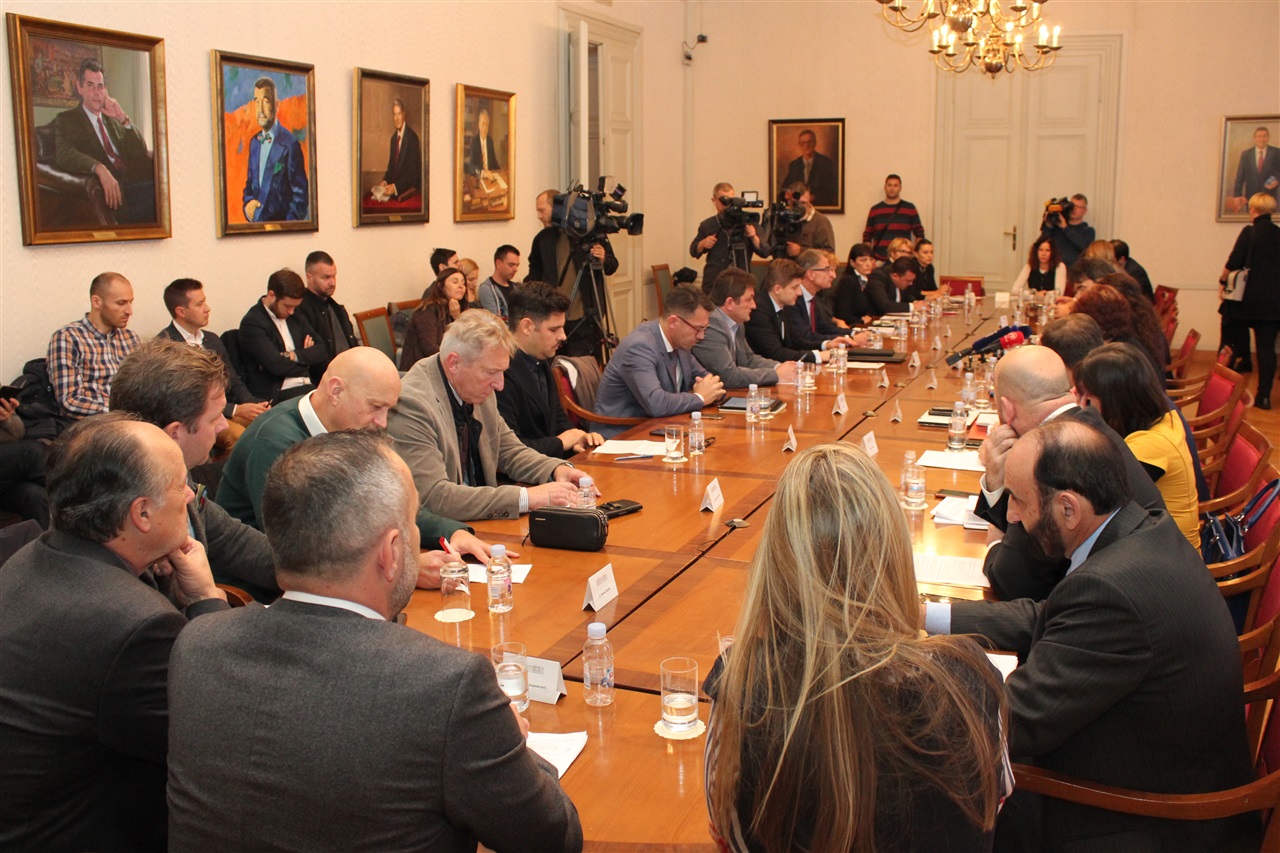
Zagreb - The planned increase in the VAT rate on hospitality services will negatively affect investment and employment and it threatens the survival of restaurant and bar owners, with differing rates for hotels and for restaurants and bars being contrary to global trends, it was said at a session of the parliamentary Tourism Committee on Thursday.
Noting that VAT rates for tourism and the restaurant and bar sector had been changed just one day before the government session on Thursday, Finance Minister Zdravko Marić said that the tax rate on hospitality services would remain at 13% for hotels and other accommodation facilities providing half and full board. Restaurants, bars and other establishments will be subject to a 25% rate, he added.
"That proposal was adopted today by the government and sent to parliament, with the explanation that hoteliers are generators of investments in tourism, which they should continue to be, and we expect that this will contribute to activating facilities that are in bad repair and are not being used," said Marić.
Tourism Minister Gari Cappelli said that the government wanted to help hoteliers because of their contracts signed for next year that were difficult to change as well as because of announcements that next year some 50 new hotels would be opened.
Commenting on claims that the higher VAT rate on services in the restaurant and bar sector would result in higher prices, Cappelli said that in Croatia tourist consumption was generally still low, around EUR 70 per day on average, while in some other countries it was around EUR 120.
Tourism Committee chair Branko Grčić recalled that in the last several years the effects of the 13% VAT rate on tourism and hospitality services had been visible in terms of employment, investment and greater competitiveness, which, he said, would all be affected by the higher, 25% VAT rate.
Representatives of trades associations attending the committee session all expressed dissatisfaction with the proposed increase of VAT on services in the restaurant and bar sector.
One of them, Igor Stanger of the Restaurant Owners Association of the Primorje-Gorski Kotar County Chamber of Trades and Crafts, said that the planned increase of the VAT rate would mean higher prices of those services as well as a drop in turnover and employment. Stanger does not believe than the 13% VAT rate for hotels providing half and full board would help because those hotels could opt for introducing all-inclusive offers resulting in tourists spending less on extra services.
The head of the Association of Employers in the Hotel Sector, Ronald Korotaj, said that a study on the impact of VAT on business and competitiveness would be completed in three months but that hotel owners already knew that Croatia was too small a country to opt for anything but quality, and that with the proposed VAT rates that would be difficult.
"Distinguishing this way between restaurants and bars and hotels is contrary to global trends because they are considered a single product," said Korotaj.
Speaking on behalf of restaurant owners, Kristijan Gržetić said that 20,000 restaurants and bars across Croatia, notably in the Slavonia region, did not agree with the proposed tax changes.
Kruno Kapetanović warned on behalf of small and family-run hotels about the problem of unfair competition on the part of households offering accommodation, which do not pay VAT but only a lump sum.
Many small hoteliers and family-run hotels have realised that it pays more to rent apartments and rooms than to be in the hotel business, said Kapetanović.
Nenad Sepak of the Association of Restaurant and Bar Owners of the Croatian Chamber of Trades and Crafts said that the proposed tax reform would affect restaurant and bar owners the most. He said that 16,000 restaurant and bar owners would have to find a way not only to continue with investments and hiring but also survive.
Eduard Andrić of the Union of Workers in the Tourism and Service Sectors said that with the new VAT rate it would be difficult to persuade employers to increase the basic wage in the tourism sector, which is among the lowest in the country. He believes that this will result in the continued emigration of workers to other countries, which he said was a problem already identified during this year's tourist season.